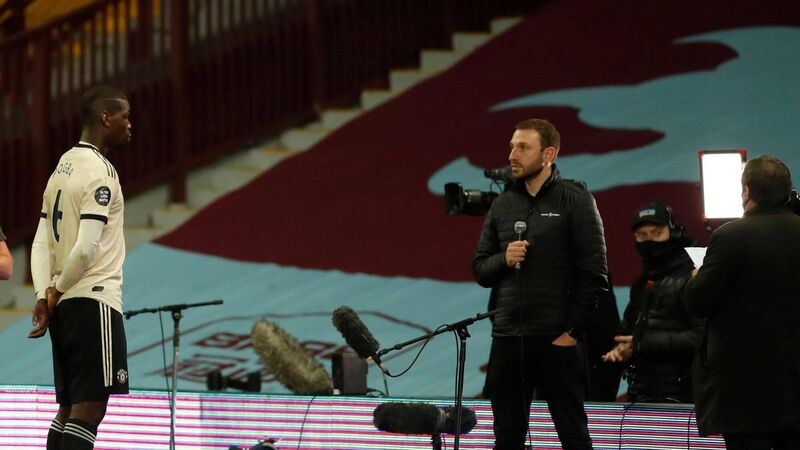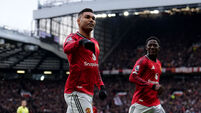Larry Ryan: If TV is football’s stage, social media is becoming its prison

Manchester United’s French midfielder Paul Pogba is interviwed by a TV crew after the Premier League game against Aston Villa last July. ‘Pogba’s ‘Pogmentary’ deal with Amazon Prime promises never-seen-before footage from his youth.
The professional footballer species evolved to make television its natural habitat.
The great film critic, David Thomson, writing in his book , remarked on the way players gradually worked their skills into performances, knowing “they are part of a system of close-ups and slow-motion”.












